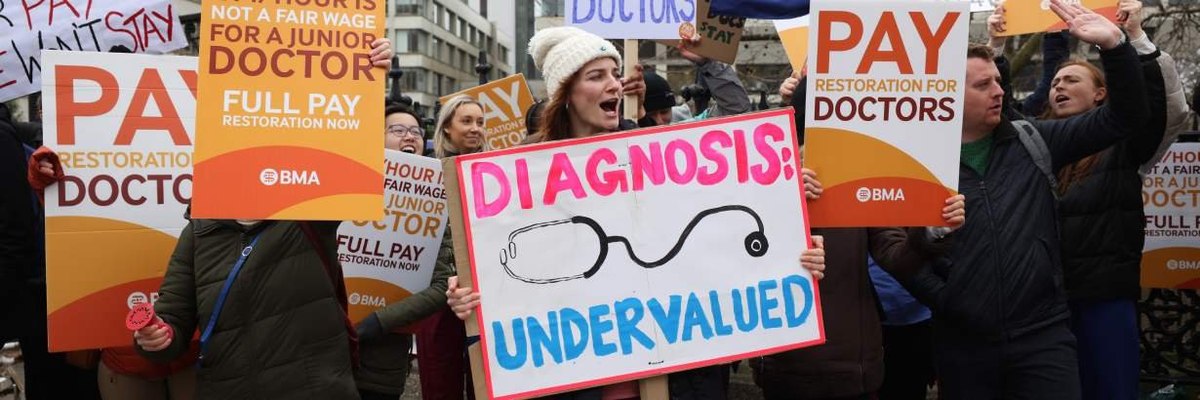Britons tend to blame the government rather than trade unions for recent industrial action
Workers from a swathe of industries staged or planned strikes over the course of the winter, igniting debate over who was to blame for the widespread industrial action.
When it comes to strikes involving NHS workers, the British public firmly believes the government, rather than trade unions, shoulder most or all of the blame.
Most Britons say the recent historic nursing strikes are mostly or completely the fault of the government, at 55% versus 16% who lay more blame on the trade unions. This is the highest level of blame for the government across the 10 professions we asked about.
Britons are similarly likely to think the government is primarily to blame for strikes by ambulance workers (53% to 15%) and also junior doctors (50% to 15%).
Between 15-18% of Britons consider both sides equally to blame for these examples of recent strikes, a figure that is largely consistent across all professions we asked about (15-20%).
However, with prominent speakers like the RMT’s Mick Lynch making themselves known at the front of picket lines, it is perhaps little surprise that Britons see trade unions as more at blame than the government for strikes affecting the railways.
At 37% to 32%, the British public tend to say strikes by railway workers are more the fault of trade unions and likewise, at 39% to 30%, the same can be said of train driver strikes.
The blame is more equally placed when it comes to university staff (29% blame the government and 29% the unions) and postal workers (31% to 30%).
Britons more likely to support strikes by NHS staff than other professionals
Junior doctors began striking today, with six in ten Britons supporting rather than opposing their industrial action (59% to 34%).
Support for strikes by other NHS workers remains strong among most Britons, with nurses attracting the most support for their recent walkouts – 63% of the public are supportive with 31% in opposition.
That is effectively unchanged since January, when the proportion was 65% to 31%.
Similarly, Britons currently support ambulance staff 60% to 33%, again basically the same as in January (61% to 32%).
Support is lowest for barrister strikes, with just 31% of the public supportive and 55% in opposition.
‘Overpaid’ professions less likely to win support while striking
Three quarters of the public (75%) believe nurses are the most underpaid of the ten striking professions, followed by ambulance staff (70%) and junior doctors (59%).
In contrast, barristers and train drivers are seen to be the most overpaid – around four in ten Britons say barristers (40%) and train drivers (37%) are overpaid, compared to between 2% and 27% of other striking professionals.
The two professions also attracted the least support for strike action, underlining YouGov’s previous findings highlighting a correlation between how underpaid a profession is seen to be and how supported its members are during strikes.
Picture: Getty









